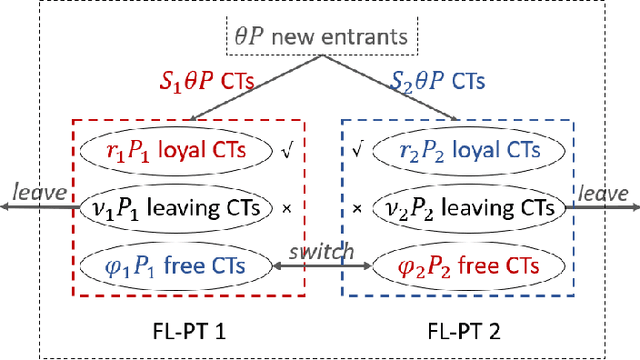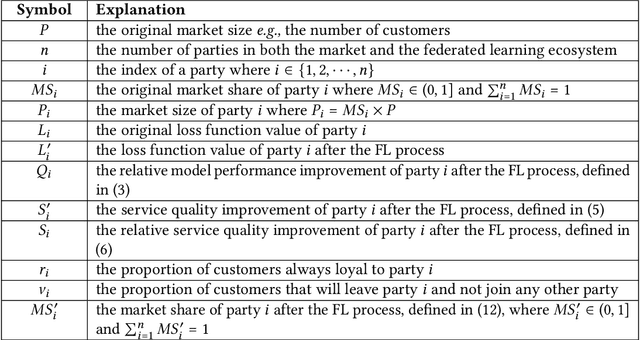MarS-FL: A Market Share-based Decision Support Framework for Participation in Federated Learning
Paper and Code
Oct 26, 2021



Federated learning (FL) enables multiple participants (PTs) to build an aggregate and more powerful learning model without sharing data, thus maintaining data privacy and security. Among the key application scenarios is a competitive market where market shares represent PTs' competitiveness. An understanding of the role of FL in evolving market shares plays a key role in advancing the adoption of FL by PTs. In terms of modeling, we adapt a general economic model to the FL context and introduce two notions of $\delta$-stable market and friendliness to measure the viability of FL and the market acceptability to FL. Further, we address related decision-making issues with FL designer and PTs. First, we characterize the process by which each PT participates in FL as a non-cooperative game and prove its dominant strategy. Second, as an FL designer, the final model performance improvement of each PT should be bounded, which relates to the market conditions of a particular FL application scenario; we give a sufficient and necessary condition $Q$ to maintain the market $\delta$-stability and quantify the friendliness $\kappa$. The condition $Q$ gives a specific requirement while an FL designer allocates performance improvements among PTs. In a typical case of oligopoly, closed-form expressions of $Q$ and $\kappa$ are given. Finally, numerical results are given to show the viability of FL in a wide range of market conditions. Our results help identify optimal PT strategies, the viable operational space of an FL designer, and the market conditions under which FL is especially beneficial.
 Add to Chrome
Add to Chrome Add to Firefox
Add to Firefox Add to Edge
Add to Edge